New Talent: New Designers 2023
For those looking for the hottest new talents and must-see trends in the world of UK design, New Designers is a go-to event in the annual calendar of trade shows and fairs. Coinciding with university end-of-year shows, the Islington Business Design Centre is flooded with students and industry experts alike during both one-week events, which fall between the end of June and the beginning of July.
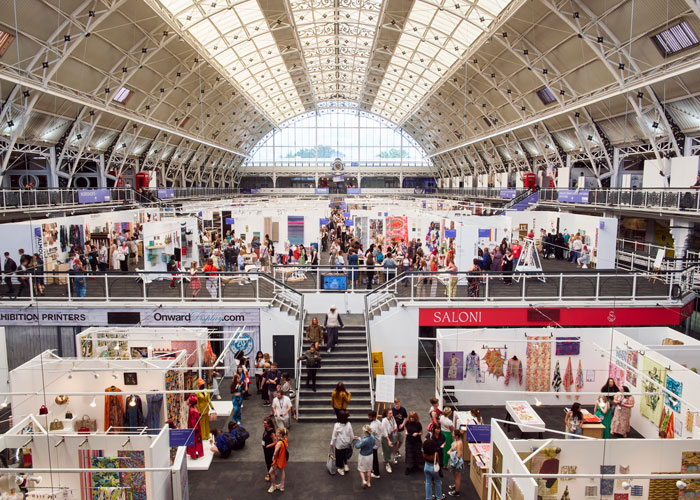
This year was no exception, and indeed, the atmosphere felt even more like that of the pre-pandemic era. While we may prefer not to dredge up reminders of those unprecedented and peculiar times, it is only fair to note that the vast majority of the 3,000 graduates on show would have begun their studies in 2020, at a time when the world was in a state of turmoil. First-year students were, by and large, either in or about to go back into a lockdown, which meant a vastly restricted level of contact with tutors and technical staff as well as fellow students. Getting to a stage where you can present your work at New Designers has always been a worthy challenge but for these graduates, it was a unique and no doubt testing feat.
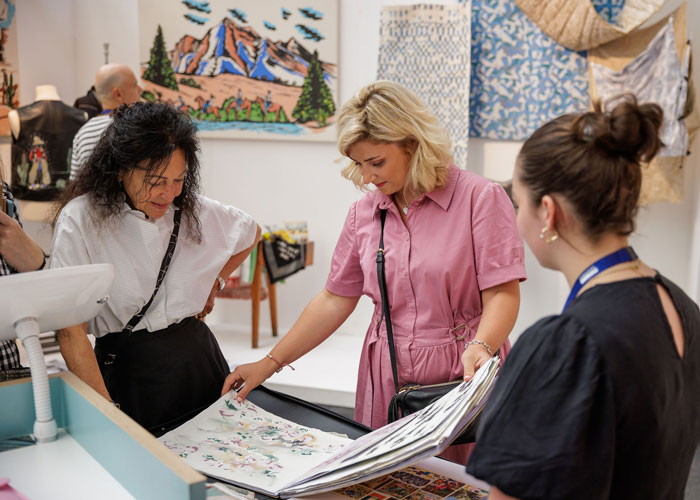
That said, the predominant themes interwoven throughout the projects on display did not feel bogged down or overly distracted by that experience. Instead many turned their attention to tackling the climate crisis through sustainable practices along with generating innovations to help ease the impact of the current mental health and cost living crises.
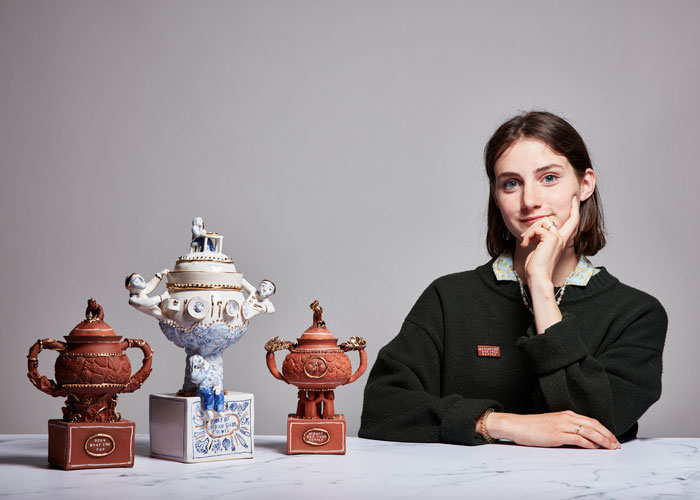
Ethical Designers Award, Martha Wiles, Manchester University
One such example comes from Manchester School of Art graduate Martha Wiles and her project Regenerative Appetite. It consists of an array of ceramic pieces in the form of trophies and awards, which have been awarded to various food waste organisations within Manchester for whom she has volunteered at. Taking this first-hand experience and celebrating those worthy but arguably overlooked groups through a symbol of appreciation won the designer her own award. As the judges of the Creative Conscience & New Designers Ethical Makers’ Award stated, “This project has already created impact, both socially and environmentally. This is clearly a very skilled, conscious, and talented artist.”
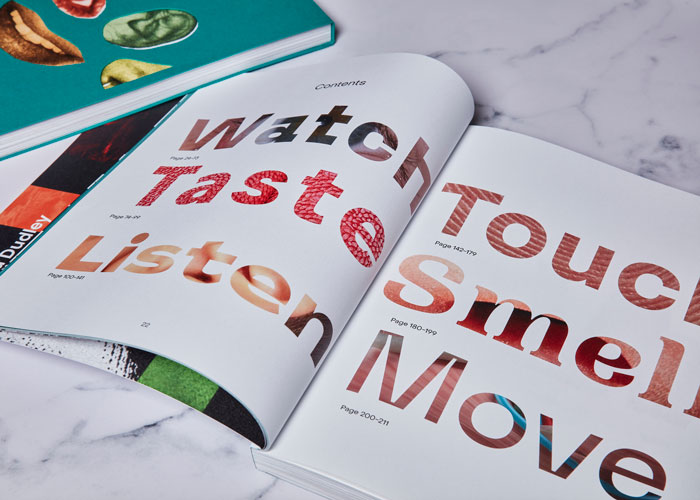
New Designers Winner, Tabitha Dudley, Northampton University
Awards remain a mainstay during both weeks of the event, with exhibitors hopeful that they may be singled out by judges from a host of accolades. Naturally, the overall New Designer of the Year Award for each week is the most highly anticipated and sought-after of the lot, and the Week 2 winner underlined a consistent subject at the show: wellbeing. Tabitha Dudley, a graduate from the University of Northampton in Graphic Communication Design, used her studies to tackle the now-traditional style of self-help books with her disruptive take on the genre. Her 220-page art book skews the format with frank and interactive text, which is broken down into chapters dedicated to the five senses. The book ultimately aims to give readers a broader dialogue with which to express themselves during times of strife and stress. In addition to the physical copy and illustrations on the page, the book also introduces QR codes that take the reader on an online journey, including more of her drawn work in the form of animation.
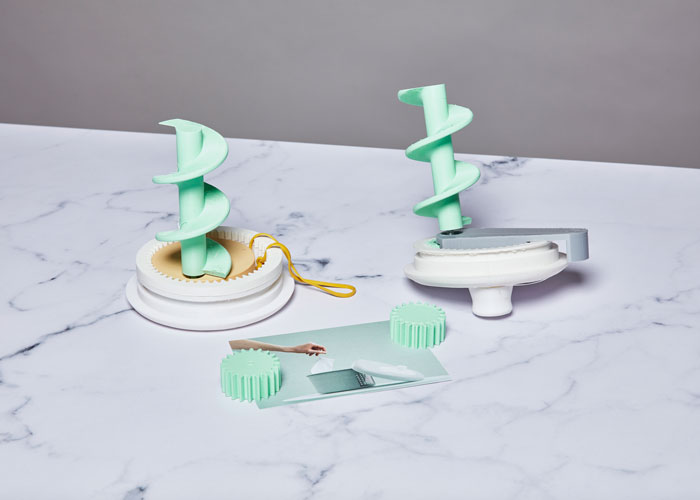
Persil Clean Futures Award, Mumtaz Karim, Manchester School Of Art
Mumtaz Karim, the winner of the Persil Clean Futures Innovation Award, bought student wellbeing, as well as sustainability, to the fore with her clever product design project Spinr. Recognising the growing cost of carrying out essential laundry, not least on those from lower-income socioeconomic backgrounds, she has designed a hand-powered washing machine. Not only does the portable unit not require electricity, but it also uses less water, making it a potentially game-changing invention for both people and the planet. As the judges highlighted, “We were impressed by Mumtaz’s approach to the challenge as much as the product design itself. Through the research, prototyping and testing with users, she has developed an innovative yet sustainable cleaning product.”
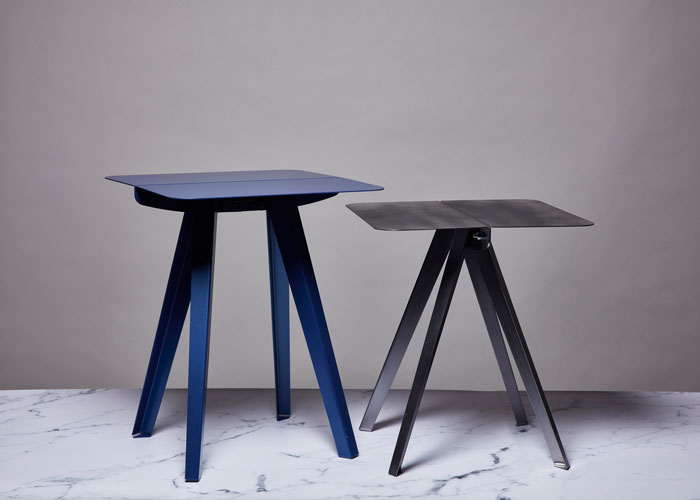
Contemporary Award, Guto Davies, Nottingham Trent
In terms of furniture, one of the stand-out offerings came from Nottingham Trent University student Guto Davies, who took inspiration from Rotterdam architecture when re-designing traditional Welsh stick chairs. While the 1282 Chair retains many of the features of the Welsh furnishing, they also have a striking contemporary feel that is led by the use of folded and rolled metal. The judges of the Viaduct Contemporary Furniture Designer of the Year Award commended his “Simplicity and creativity of approach,” along with a “good sense of proportion and lightness that Blens traditional and contemporary design.
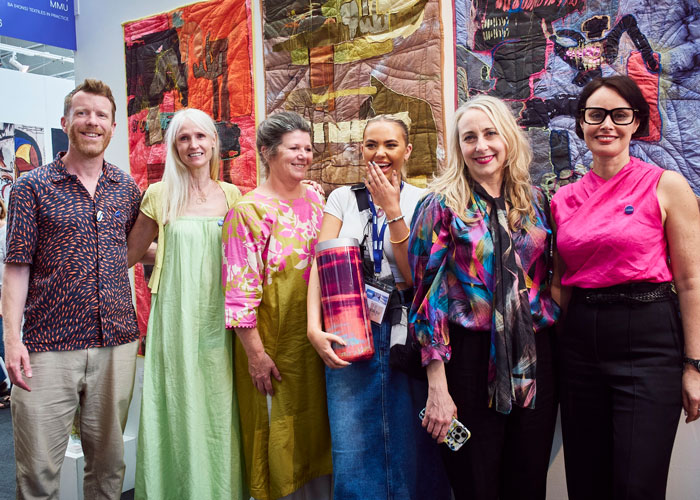
Colour in Design Award, Amber Lily, Manchester Metropolitan
Along with materiality and pattern, colour continues to be a stand-out performer at the event and this year the search shades and combinations that inspire joy seemed to be on the mind of many a student. A leading spotlight in the quest for brave and sensitive applications of colour is the Colour in Design Award and this year Amber Lily received the prize for choosing to highlight the ordinarily unnoticed details of everyday life. Notice the Unnoticed seeks to celebrate the mundane, notably the scuffs and marks we make as a species upon the built environment. Her textiles are large in scale and rich in gestural marks, which are bought to life by bold colour combinations.
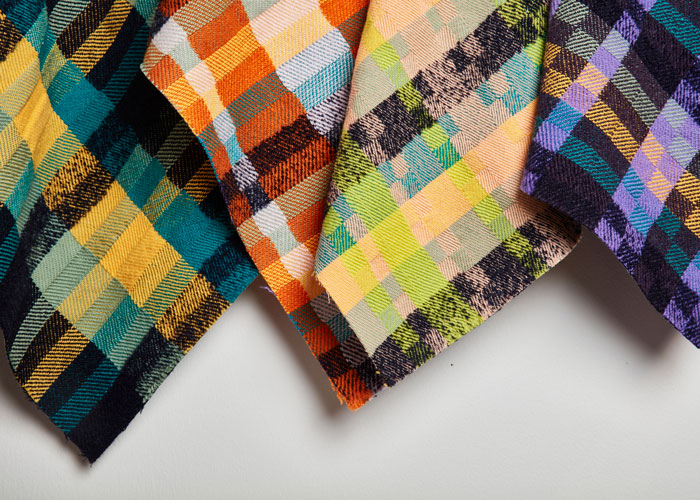
Designers Guild, Victoria Hughes, Glasgow School Of Art
As the hefty title suggests The Designers Guild Award for Textile Designer of the Year – for Colour, Pattern and Innovation in Textiles is another that focuses on the usage of colour. This year the accolade went to Glasgow School of Art graduate Victoria Hughes for her project Cut & Paste. The woven textile collection has been made as transport fabric for the likes of buses, planes and trains with the specific intent of inspiring happiness through the unique colour and graphic pattern combinations at play.
![]()
Future Icons, Make Relief, ND Selects
Alongside the graduate shows, ND Selects, formerly One Year On, showcased a carefully curated selection of work from previous exhibitors of all design disciplines. Make Relief is a studio founded by Will Atkins, for which materiality plays a central role in the creation of art and furniture pieces. Sustainable and bio-based materials are a core tenet of the studio, with cork and recycled plastic used in the creation of the Kerf side tables, which were on display at the show. Will has already established a professional design studio that includes a diverse offering of fabrication processes including mould-making, casting, CNC routing/laser cutting as well as 3D printing. The judges of the ND Selects Award highlighted his “well-thought-out business case, with exciting prospects,” when giving the prize of a spot at next year’s Future Icons exhibition, and indeed, Make Relief certainly feels like one of many fresh designers and brands worth keep an eye on in the years to come.




